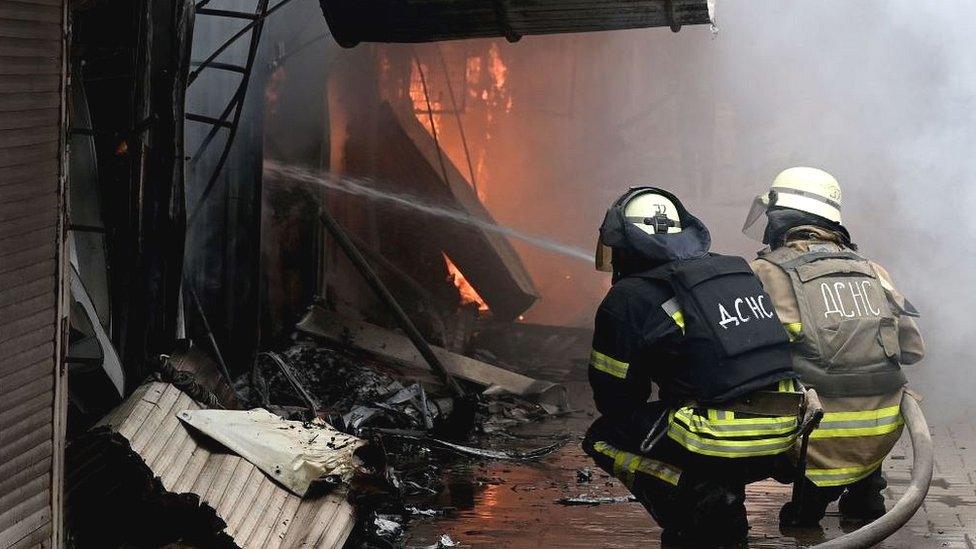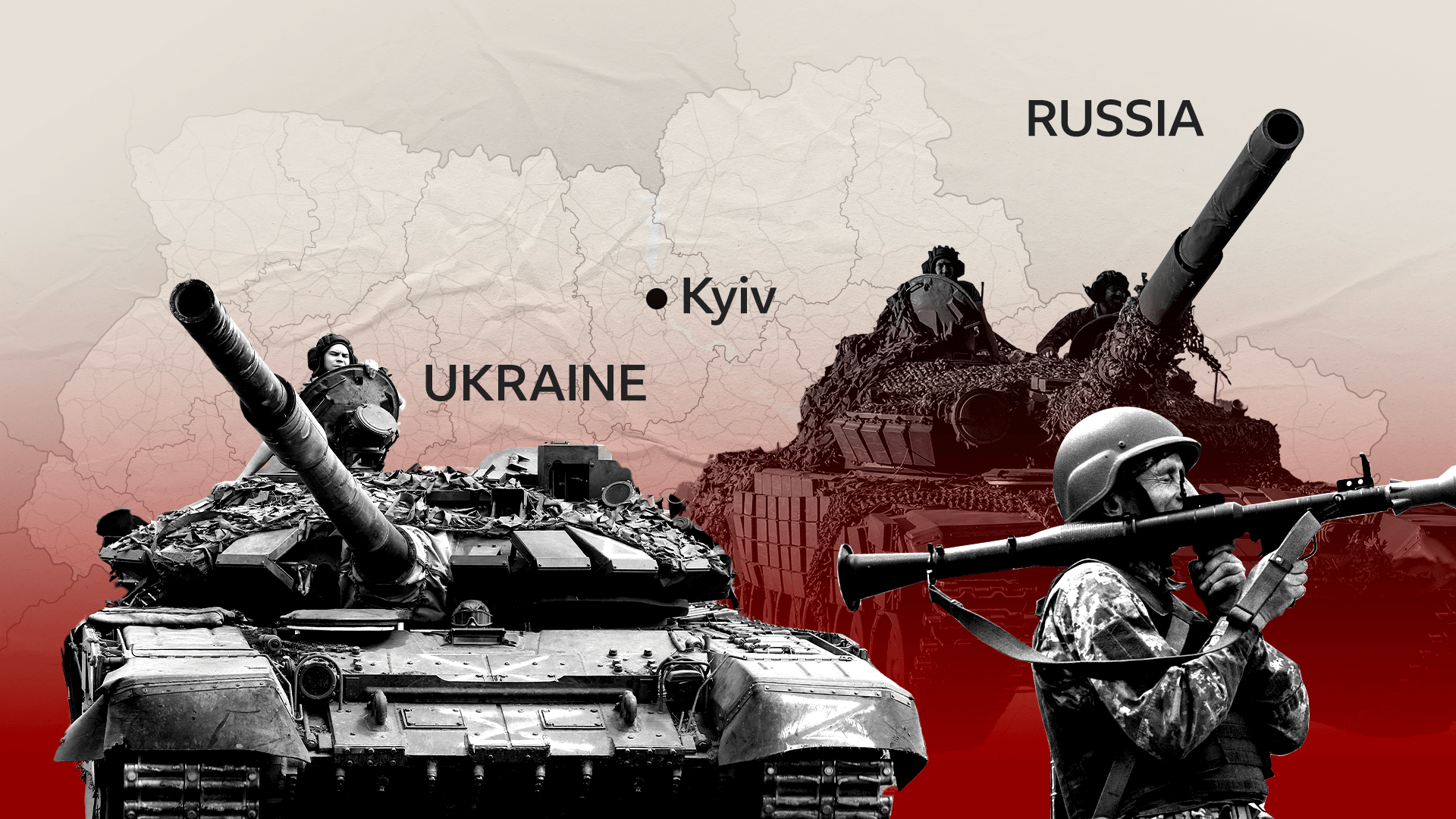Ukraine war: Irish PM visits areas of war-torn Kyiv
- Published
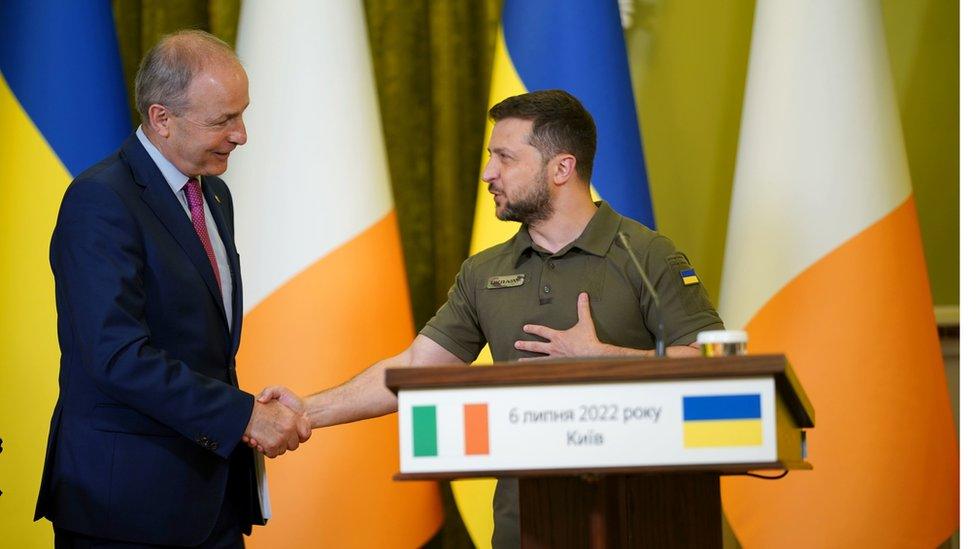
Micheál Martin met President Volodymyr Zelensky and the pair held a joint press conference
The taoiseach (Irish prime minister) has witnessed the devastation caused by the Russian invasion of Ukraine while on a visit to Kyiv.
Micheál Martin arrived in the Ukrainian capital on Wednesday where he was taken to nearby war-torn towns.
The taoiseach also held talks with Ukrainian President Volodymyr Zelensky, who thanked Ireland for its support.
Mr Martin restated Irish solidarity with Ukraine in the face of Russian aggression.
"We are very grateful and we will remember this always as matter of principle, and the gesture of solidarity towards our people," Mr Zelensky said during a joint press conference with Mr Martin.
"Our Irish friends fully appreciate the threats created by this Russia aggression against Ukraine and aggression against the whole democratic world.
"We discussed our joint responses to the energy crisis and preparation of the new sanctions package against the Russia."
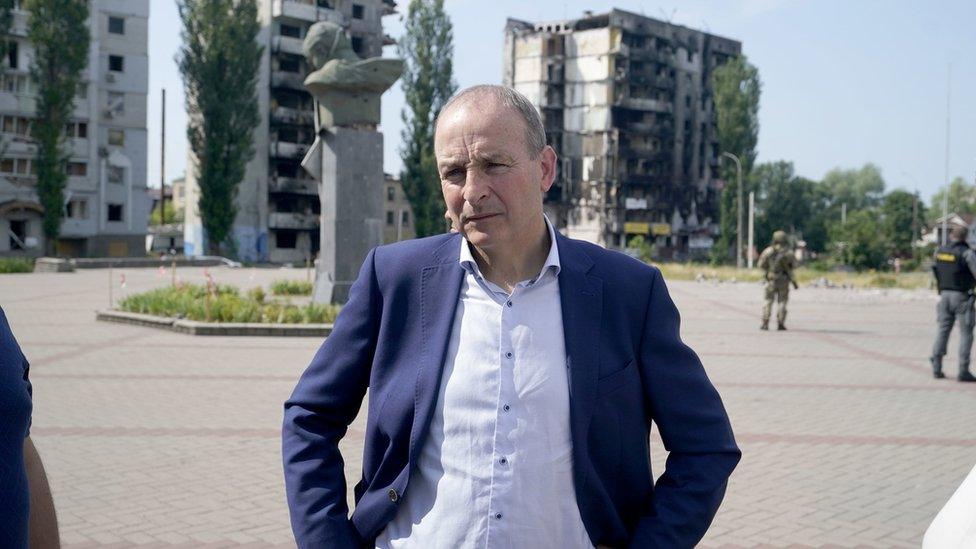
Taoiseach Micheál Martin viewing the damage to Borodyanka
Mr Martin thanked Mr Zelensky for his "very warm welcome".
"I want to thank you for your remarkable leadership which is greatly admired in Ireland," he said.
"Russia's brutal war against this beautiful democratic country is a gross violation of international law.
"It is an affront to everything that Ireland stands for, it cannot and will not be allowed to stand."
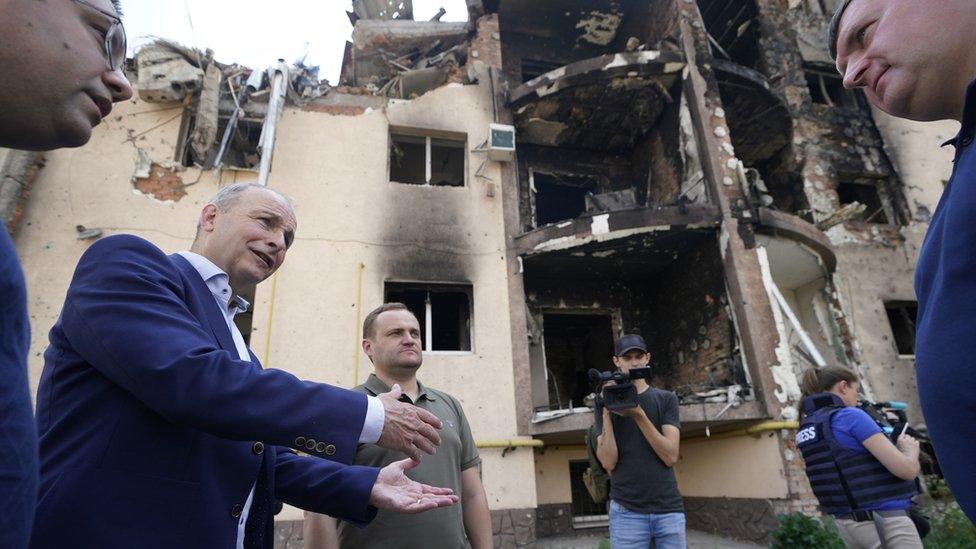
The taoiseach visited Irpin, another town on the outskirts of Kyiv
The taoiseach reiterated his support for Ukraine's fast-tracked membership of the EU.
"I have always made clear from the outset our strong view that Ukraine belongs to the EU, the values that people are fighting and dying for today are European values," he added.
Mr Martin's day-long itinerary in the city began with a trip to Borodyanka - a town on the outskirts of Kyiv that has widespread damage under Russian shelling.
He met the town's mayor and viewed apartment blocks gutted by fire during the Russian bombardment.
From there, Mr Martin visited the site of a mass grave in Bucha, an area captured by Russian forces in the early days of the war.
A cleric showed Mr Martin the site and an exhibition of graphic photographs of exhumed bodies and pictures of civilians left dead on the streets of the suburb when Russian forces retreated.
The Irish delegation then travelled to nearby Irpin where the taoiseach was shown badly-damaged apartment blocks that had been hit by Russian shells.
Allow X content?
This article contains content provided by X. We ask for your permission before anything is loaded, as they may be using cookies and other technologies. You may want to read X’s cookie policy, external and privacy policy, external before accepting. To view this content choose ‘accept and continue’.

Afterwards, Mr Martin said: "It is difficult to comprehend the devastation and inhumanity of Russia's attacks on Irpin, Borodyanka and Bucha.
"Clear how important it is for women and children to get to Ireland to escape trauma and brutality. We stand with Ukraine."
Mr Martin's trip comes two weeks after President Zelensky invited him to visit Ukraine.
It is the first visit by a taoiseach to the eastern European country.
The Republic of Ireland has also taken in more than 36,000 Ukrainian refugees since Russia invaded neighbouring Ukraine at the end of February.
The state has given 20m euros (£17.1m) in humanitarian support and assistance to the country, as well as health equipment and medical donations worth more than 4.5m euros (£3.8m).
Related topics
- Published5 July 2022
